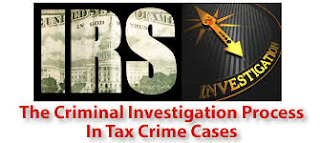On September 3, 2018 we posted 150 Offshore Banks & Now Financial Advisors Are Turning Over Your Names To The IRS - What Are Your Waiting For?, we discussed that the IRS keeps updating its list of foreign banks which are turning over the names of their US Account Holders, who where then subject to a 50% (rather than 27.5%) penalty in the IRS’s Offshore Voluntary Disclosure Program (OVDP) and that Liechtensteinische Landesbank was on this list.
Now according to DoJ, the Justice Department Announced that the resolution with LLB Verwaltung (Switzerland) AG Assistance to U.S. Taxpayers to Commit Tax Evasion has resulted in $10.6 Million PenaltyLLB Verwaltung (Switzerland) AG, formerly known as “Liechtensteinische Landesbank (Schweiz)
AG” (LLBSwitzerland), a Swiss-based private bank, reached a resolution with the United States Department of Justice, announced Principal Deputy Assistant Attorney General Richard E. Zuckerman of the Justice Department’s Tax Division on August 5, 2019.
As part of the agreement, LLB-Switzerland will pay a penalty of $10,680,554.64 to the United States.
According to the terms of the non-prosecution agreement, in addition to paying a penalty, LLB-Switzerland has agreed to cooperate in any related criminal or civil proceedings in return for the Department’s agreement not to prosecute the company for tax-related criminal offenses committed by LLB-Switzerland.
According to the statement of facts agreed to by the parties, LLB-Switzerland and some of its employees, including members of the bank’s management, conspired with a Swiss asset manager and U.S. clients to conceal those U.S. clients’ assets and income from the Internal Revenue Service (IRS) through various means, including using Swiss bank secrecy protections and nominee companies set up in tax haven jurisdictions. The majority of those accounts were in the names of nominee entities.
In 1997, Liechtensteinische Landesbank AG (LLB-Vaduz), a bank headquartered in Liechtenstein, acquired LLBSwitzerland (LLB-Vaduz reached a separate agreement with the Justice Department in 2013 that excluded LLBSwitzerland from the resolution).
At that time, LLB-Switzerland provided banking and asset management services to individuals and entities, including citizens and residents of the United States, principally through private bankers based in Zurich, Geneva and Lugano, Switzerland. LLB-Switzerland also acted as a custodian of assets managed by thirdparty external investment advisers.
In 2003, LLB-Switzerland began a relationship with a Swiss asset manager. The asset manager offered to create nominee structures, including corporations, foundations, and trusts, to conceal accounts owned by his U.S. clients at Swiss financial institutions. LLB-Switzerland delegated to the Swiss asset manager the authority to prepare account opening and “know your customer” (KYC) documents.
The Swiss asset manager provided prospective customers with a sales letter, pitching his ability to conceal a client’s assets and income from taxing authorities through the use of multiple layers of sham offshore entities and nominee directors in countries or regions that the Swiss asset manager thought would resist requests for information and assistance from foreign law enforcement, including law enforcement in the United States. LLB-Switzerland and its management knew that the Swiss asset manager was marketing structures to clients as a means of tax evasion as the bank kept a copy of the manager’s sales letter in the bank’s files.
In 2008, after it became publicly known that UBS AG, Switzerland’s largest bank, was the target of a U.S. criminal investigation focusing on tax and other violations, the amounts that LLB-Switzerland held for U.S. clients swelled.
At the end of 2007, the Bank had 72 U.S. clients with almost $80 million in assets. By the end of the next year, the number of U.S. clients increased to 107, but the assets more than doubled to over $176 million. LLB-Switzerland’s management knew that many of the U.S. clients coming to LLB‑Switzerland were bringing undeclared funds with them.
Although LLB-Switzerland’s management monitored the United States’ investigation of UBS, LLB-Switzerland failed to take actions to cease assisting U.S. taxpayers to evade their taxes. While in August 2008, LLB-Vaduz prohibited U.S. persons from becoming clients of the Liechtenstein bank, LLB-Switzerland did not implement a similar policy.
Despite press reports, indicating the Swiss asset manager was under investigation for helping clients evade U.S. taxes, LLBSwitzerland waited two years, until a grand jury had indicted the Swiss asset manager, to close the accounts he managed.
LLB-Switzerland’s remediation efforts since 2012 have been comprehensive.
- It halted and terminated all U.S. crossborder business with U.S. clients.
- All of LLB-Switzerland’s U.S. clients and its relationship with the Swiss asset manager ended.
- It also dismissed its managers and employees implicated in the Department’s investigation of the bank’s U.S. cross-border business, and
- LLB-Vaduz has shut down the operations of LLB-Switzerland.
In 2013, LLBVaduz closed LLB-Switzerland and returned LLB-Switzerland’s banking license to the Swiss Financial Market Supervisory Authority.
Under this agreement Liechtensteinische Landesbank is required to:
- Make a complete disclosure of their cross-border activities;
- Provide detailed information on an account-by-account basis for accounts in which U.S. taxpayers have a direct or indirect interest;
- Cooperate in treaty requests for account information;
- Provide detailed information as to other banks that transferred funds into secret accounts or that accepted funds when secret accounts were closed;
- Agree to close accounts of account holders who fail to come into compliance with U.S. reporting obligations; and
- Pay appropriate penalties.
Liechtensteinische Landesbank has made substantial efforts to cooperate with the IRS investigation, including by:
- facilitating interviews that their Office with employees, including top level executives;
- voluntarily producing documents in response to the Office’s requests;
- providing, in response to a treaty request, unredacted client files for the U.S. taxpayer-clients who maintained accounts at their Banks or Financial Instruction; and
- committing to assist in responding to a treaty request that is expected to result in the production of un-redacted client files for U.S. taxpayer-clients who maintained accounts at these Banks and Financial Instructions and with these Foreign Financial Advisors.
Read more at: Tax Times blog














